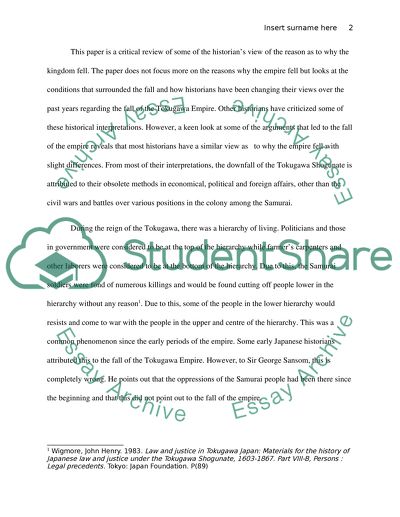Cite this document
(“The Downfall of the Tokugawa Shogunate Essay Example | Topics and Well Written Essays - 2000 words”, n.d.)
Retrieved from https://studentshare.org/history/1468864-the-downfall-of-the-tokugawa-shogunate
Retrieved from https://studentshare.org/history/1468864-the-downfall-of-the-tokugawa-shogunate
(The Downfall of the Tokugawa Shogunate Essay Example | Topics and Well Written Essays - 2000 Words)
https://studentshare.org/history/1468864-the-downfall-of-the-tokugawa-shogunate.
https://studentshare.org/history/1468864-the-downfall-of-the-tokugawa-shogunate.
“The Downfall of the Tokugawa Shogunate Essay Example | Topics and Well Written Essays - 2000 Words”, n.d. https://studentshare.org/history/1468864-the-downfall-of-the-tokugawa-shogunate.


